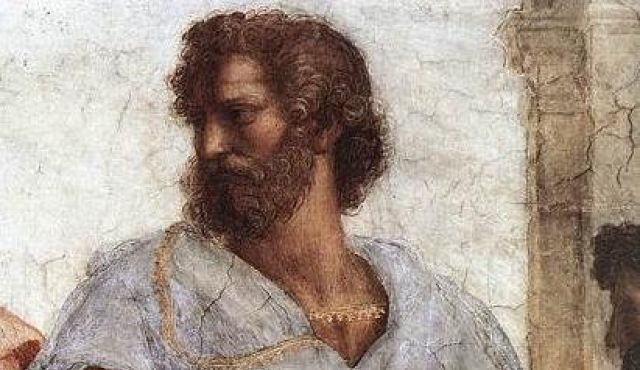The Torah content for this week has been sponsored by Ellis and Janice Cohen in memory of Rabbi Moskowitz zt"l.
Ralbag on the Speculative Nature of Taamei ha'Mitzvos
Throughout his Torah commentary, Ralbag provides numerous taamei ha’mitzvos (reasons for the commandments), endeavoring to show how each mitzvah perfects our middos (character traits) and deios (knowledge of the universe). Many of these explanations are “Aristotelian” in character. Ralbag takes no measures to conceal this. He often quotes Aristotle directly or refers the reader to his works.
What are we to make of these Aristotelian taamei ha’mitzvos explanations? Does Ralbag really believe that Hashem had these Aristotelian ideas “in mind” when He “designed” these mitzvos? How certain is Ralbag that his taamei ha’mitzvos theories are true? Thankfully, Ralbag addresses these questions in his introduction:
You should not overlook the fact that when giving causes (i.e. reasons, or as Aristotle would call them, “final causes”) in Torah matters such as these, it is impossible to provide causes which necessitate the existence of these mitzvos in an absolute manner, as it is in the deductive branches of wisdom. It is also impossible to provide the same types of causes as those given in the study of the natural world. This is not at all possible, since the nature of the subject matter of Torah does not lend itself to this degree of certainty, as Aristotle explained in the Sefer ha’Middos.
Ralbag is referring to the following passage in Aristotle’s Nicomachean Ethics 1:3:
We must also remember what has been said before, and not look for precision in all things alike, but in each class of things such precision as accords with the subject matter, and so much as is appropriate to the inquiry. For a carpenter and a geometer investigate the right angle in different ways; the former does so insofar as the right angle is useful for his work, while the latter inquires what it is or what sort of thing it is; for he is a spectator of the truth.
In other words, it would be a methodological mistake to look for the same degree of certitude in the study of history as in math, the same level of precision in literary analysis as in physics, or the same degree of necessary conclusions in moral philosophy as in symbolic logic. Every intellectual discipline has its own methods and standards, and it would be wrong to expect one subject matter to comply with the conventions of another. Ralbag then goes on to explain why he felt compelled to include this point in his introduction:
We mentioned this so that the reader does not devalue the reasons we provided for the mitzvos of the Torah in our commentary for failing to meet the standards of other disciplines; the subject matter of those subjects lends itself to a greater degree of verification than these Torah matters and other things like them.
Ralbag was concerned that someone might read his speculative taamei ha’mitzvos and think to themselves, “How can he claim that this is the reason for this mitzvah? How does he know? Can he prove it? Can he explain why this middos/deios objective necessarily warrants this particular mitzvah-structure with these particular halachos?” Such questions stem from the methodological error of demanding that the study of taamei ha’mitzvos conform to the standards of other branches of knowledge. Such an error would be disastrous if it led the reader to make light of the taamei ha’mitzvos theories that Ralbag provides – or worse, to disregard the study of taamei ha’mitzvos altogether.
At the end of the day, how might Ralbag respond to the charge (leveled by some) that he has projected Aristotelian ideas onto Torah? I’d like to think he’d say something like this: “First, the study of taamei ha’mitzvos is not an exact science. Second, I do not regard Aristotle to be infallible. I have recorded what, to my mind, are the most compelling explanations for the taamei ha’mitzvos. Since I hold that Aristotle was right about a great many things, I have chosen to express my ideas by drawing upon his writings.”
What would Ralbag say about alternative explanations? I suspect he would say what he, in fact, writes in his introduction to Sefer Mishlei: “And if you will find another suitable way to explain a pasuk [which differs from our explanation], this does not constitute an argument against us, for we do not proclaim that the pasuk cannot tolerate any other explanation.”
For all his radical views, Ralbag was an intellectually humble thinker.
______________________________
If you've gained from what you've learned here, please consider contributing to my Patreon at www.patreon.com/rabbischneeweiss. Alternatively, if you would like to make a direct contribution to the "Rabbi Schneeweiss Torah Content Fund," my Venmo is @Matt-Schneeweiss, and my Zelle and PayPal are mattschneeweiss at gmail.com. Even a small contribution goes a long way to covering the costs of my podcasts, and will provide me with the financial freedom to produce even more Torah content for you.
If you would like to sponsor a day's or a week's worth of content, or if you are interested in enlisting my services as a teacher or tutor, you can reach me at rabbischneeweiss at gmail.com. Thank you to my listeners for listening, thank you to my readers for reading, and thank you to my supporters for supporting my efforts to make Torah ideas available and accessible to everyone.
Be sure to check out my YouTube channel and my podcasts: "The Mishlei Podcast", "The Stoic Jew" Podcast, "Rambam Bekius" Podcast, "Machshavah Lab" Podcast, "The Tefilah Podcast" Email me if you'd like to be added to my WhatsApp group where I share all of my content and public shiur info.

6A718
ReplyDeletepubg uc satın al
sightcare
64A0C
ReplyDeleteglucotrust official website
https://www.pinshop.com.tr/game/pubg-mobile/pubg-mobile-uc
A93F7
ReplyDeleteglucotrust
https://www.pinshop.com.tr/game/pubg-mobile/pubg-mobile-uc